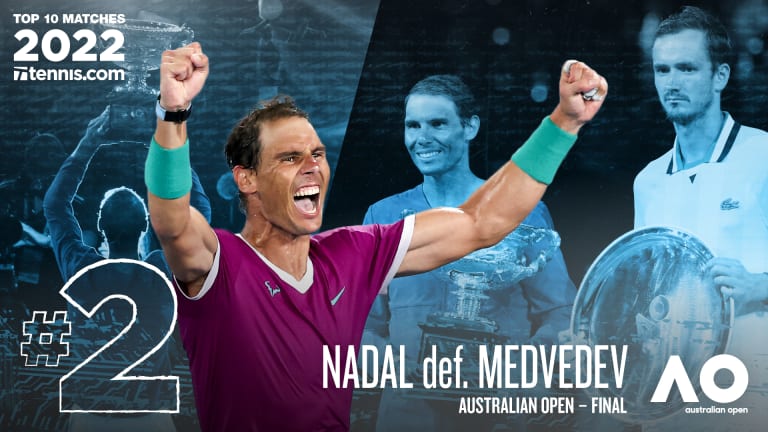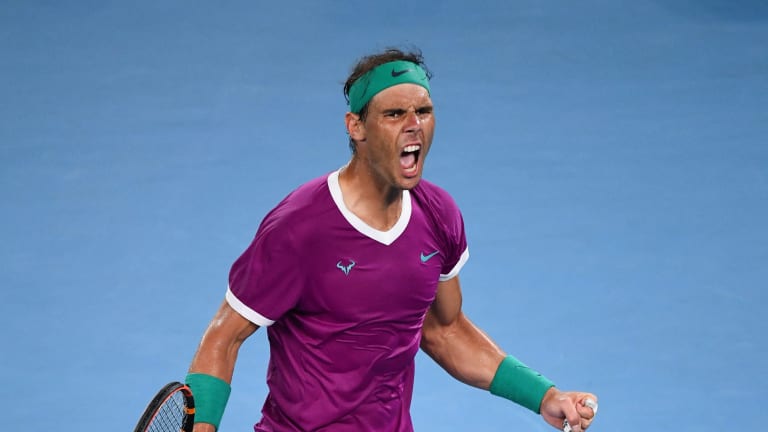The Top 10 Matches of 2022
No. 2 of '22: Rafael Nadal never gives up in career-defining Australian Open final reversal against Medvedev
By Dec 08, 2022The Top 10 Matches of 2022
No. 1 of '22: Carlos Alcaraz conquers Novak Djokovic in a classic, kicking off a generations-spanning rivalry
By Dec 09, 2022The Top 10 Matches of 2022
No. 3 of '22: Serena Williams' unforgettable three-night run peaks with a win over the US Open's No. 2 seed
By Dec 07, 2022The Top 10 Matches of 2022
No. 4 of '22: Roger Federer didn't win his farewell match, but a sendoff for the ages eclipsed the final scoreboard
By Dec 06, 2022The Top 10 Matches of 2022
No. 5 of '22: Carlos Alcaraz and Jannik Sinner beam the future of tennis backwards in time (and play until 2:50 a.m.)
By Dec 05, 2022The Top 10 Matches of 2022
No. 6 of '22: Iga Swiatek was the best this season—and she brought out the best in Barbora Krejcikova
By Dec 02, 2022The Top 10 Matches of 2022
No. 7 of '22: Rafael Nadal, Felix Auger-Aliassime, and tennis of the highest and most engrossing order
By Dec 01, 2022The Top 10 Matches of 2022
No. 8 of '22: Nick Kyrgios and Frances Tiafoe put it all together this season, and in this match
By Nov 30, 2022The Top 10 Matches of 2022
No. 9 of '22: Petra Kvitova edges Garbine Muguruza in US Open third-rounder that felt like a final
By Nov 29, 2022The Top 10 Matches of 2022
No. 10 of '22: 19-year-old Holger Rune arrives with win over Novak Djokovic in Paris Masters final
By Nov 28, 2022No. 2 of '22: Rafael Nadal never gives up in career-defining Australian Open final reversal against Medvedev
"I just wanted to give me a chance," Rafa said after rallying from two sets and 2-3, 0-40 down for his 21st major crown and first Down Under in 13 years.
Published Dec 08, 2022
Advertising

The final score: Nadal d. Medvedev, 2-6, 6-7 (5), 6-4, 6-4, 7-5
Advertising

With his comeback against Medvedev, Nadal cemented a 10-0 swing Down Under this year.
© AFP via Getty Images